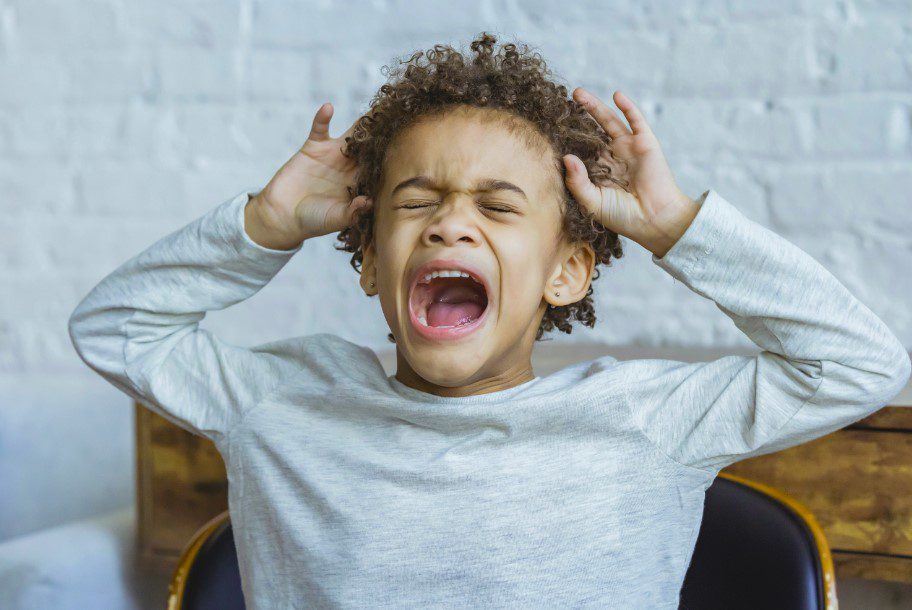If it has ever crossed your mind that your child is depressed, you are probably right. By the time these thoughts begin to linger in your mind, your child must be going through a lot!
It can be so frustrating, especially when you have no clue whatsoever what is the root cause. It is even worse when you have to deal with a child who has totally lost interest in life itself!
When depression goes further than is generally acceptable, your child can also show decreased ability to feel pleasure, in what is known as anhedonia.
While it is okay for your child to have occasional blues of sadness and emotional tantrums, it is another thing when these turn to extreme anger and irritability for spells lasting more than two weeks.
Of course, you should be more concerned when these emotional extremes stretch for months and years. They could be warning signs your child needs pediatric depression treatment!
Depression in children is becoming prevalent in the 21st century, because kids today go through childhood development in unique ways compared to their peers in the past.
They face unique challenges due to emerging global culture, urbanization, and of course, technology.
All these coupled with the inability on the part of parents to provide timely guidance can only complicate matters.
Other factors known to cause anxiety and depression in children today include:
- bullying and learning challenges at school and online
- starting school or changing to a new school
- separation from friends
- death of a parent and close friend
- family conflicts & problems such as violence, divorce, parent absenteeism, etc
- physical disabilities
- emotional challenges due to lack of money, bedwetting etc.
- medical complications
- sexual abuse
- substance abuse
- environmental factors such as living in a war zone
- personality disorder
- sleep deprivation
- family history of depression
What is depression?
Depression is a disorder that affects a person’s mood, behavior, and health. It is evident through low mood, a loss of interest in everything, pessimism, and poor health.
Common types of depression that affect children include:
- major depressive disorder
- persistent depressive disorder
- disruptive mood disorder
- bipolar disorder
- atypical depression
Every parent should be concerned when the symptoms of depression mentioned above persist for longer durations than necessary.
Depression is the principal cause of illness and disability in the world. The World Health Organization (WHO) has been issuing warnings about this pathology for years, given that it affects over 300 million people all over the world and is characterized by a high risk of suicide (the second most common cause of death in those aged between 15 and 29)
https://www.frontiersin.org/articles/10.3389/fpsyg.2019.00543/full
In a 2018 report, only 50% of depressed children receive the much-needed diagnosis.
This means that many are left to wander around, on the brink of complications such as suicide.
According to WHO, suicide cases resulting from depression is the second leading cause of death among youths aged 15 to 29.
So, how do you tell your child is depressed & needs help?

Child depression is often ignored because of the semblance it has with common emotional turbulences children go through.
A little digging, however, should make you figure out what is safe depression and not, and why you should sort out the emotional battles in your child before something goes wrong!
1. Sadness & hopelessness:
Sadness that stretches for days is symptomatic of persistent depressive disorder. This emotional pain is often accompanied by crying and tearfulness. Sadness becomes a problem when it builds up for long durations, usually due to bullying, or death of a friend, etc. Hopelessness arises when a child feels unloved at home or school, and nobody is coming to his rescue.
2. Anger, irritability & hostility:
Your 10 year child may exhibit extreme anger, irritability, and even hostility towards others, and for long durations. This may be characterized by intense outbursts and very bad tempter in what is known as disruptive mood dysregulation disorder, or more serious, bipolar disorder. This mood change goes beyond the basic child tantrums and will require medical attention if it persists for up to 12 months.
3. Low self-esteem:
When a child feels out of place, distances himself from others, and has low motivation and interest, then surely he is battling depression. A child with low self-esteem feels insecure about everything and easily falls prey to taunts and criticism from peers and adults. This leads to poor performance at home and school, and withdrawal from active participation in social and other activities.
4. Fatigue & ill health:
When your child suddenly loses interest in what used to be exciting, looks fatigued, and has trouble sleeping, he is probably a victim of major depression. Besides tiredness, your child may complain of frequent headaches and stomach pains.
5. Change in appetite:
Bullying, lack of attention, and violence can distract a child from eating correctly. He can eat less or more food in what is described as picky eating or binge eating. Excessive eating and weight gain accompanied by other symptoms point to a disorder known as atypical depression. Besides depression, multiple other reasons can interfere with your child’s eating habits.
6. Battered executive functioning skills:
You will know your child is depressed when suddenly what was routine becomes a chore. Your child will become poor in making decisions, forgetful, lost, and incapable of planning out stuff in what is known as a persistent depressive disorder.
7. Sleep disorders:
When your child sleeps for less or more hours than necessary, it is likely he is suffering from a persistent depressive disorder. Children above 3 years should sleep for up to 12 hours at night. Less than that is bad, while sleeping that stretches for over 13 hours is a little to the extreme for your 10-year-old. A child will oversleep (hypersomnia) and under-sleep (insomnia) due to multiple depressive disorders.
Other telltale signs your child is depressed include withdrawal from social and other activities, age regression, mood changes from high to low and vice versa, low energy, suicidal thoughts, attempts to run from home, and medical symptoms with no medical explanation, etc.
Family history of depression
Oftentimes, depression runs through the family. A sudden change in brain functionality due to hereditary factors can trigger a chain of depressive patterns, which repeat themselves from generation to generation.
In addition, one parent with a history of depression can likely exacerbate the disorder in children.




Leave a Reply